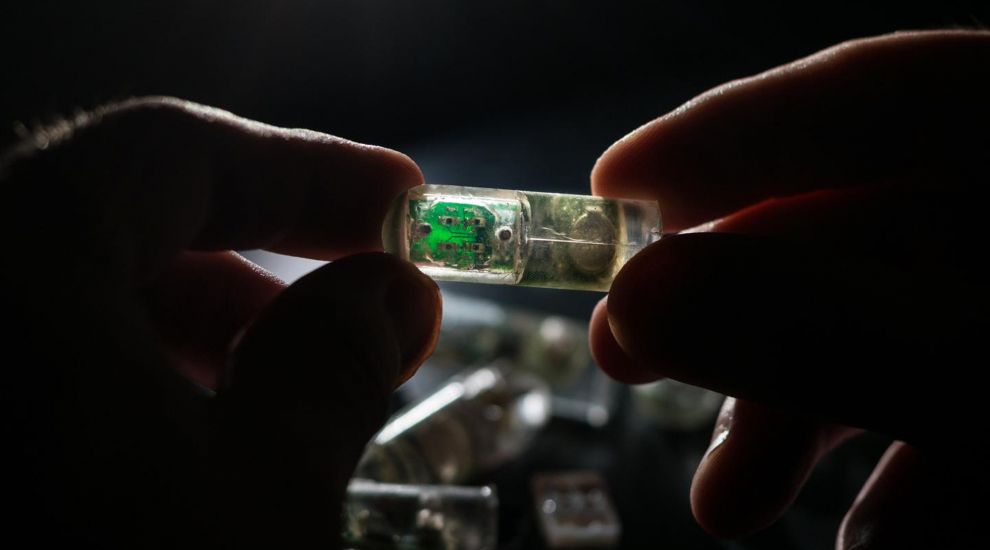
A sensor small enough to swallow and which can diagnose gut diseases has been designed by scientists.
Dubbed “bacteria on a chip” because it contains genetically engineered microbes that interact with an electronic chip, the researchers say the device can detect bleeding in the stomach or other gastrointestinal problems.
The technology has been tested in pigs but the hope is the device could in future allow doctors to diagnose gut diseases on the spot.
Timothy Lu, an associate professor at the Massachusetts Institute of Technology (MIT), said: “By combining engineered biological sensors together with low-power wireless electronics, we can detect biological signals in the body and in near real-time, enabling new diagnostic capabilities for human health applications.”
Bacteria can be genetically engineered to respond to a specific stimulus, like for example, the presence of certain environmental pollutants or molecules linked to certain diseases.
The team designed the sensor to incorporate a chip that could translate these bacterial responses into a wireless signal.
Phillip Nadeau, a postdoctoral researcher at MIT, said: “Our idea was to package bacterial cells inside a device.
“The cells would be trapped and go along for the ride as the device passes through the stomach.”

During testing on pigs, the prototype sensor was able to detect molecules linked to internal bleeding, causing the bacterial cells to glow.
This, in turn, activated the wireless sensor sending information to a mobile phone in real time.
The researchers want to reduce the size of the sensor, which is currently 1.5 inches (3.8cm) long, and study how long the bacteria cells can survive in the digestive tract.
The research is published in the journal Science.